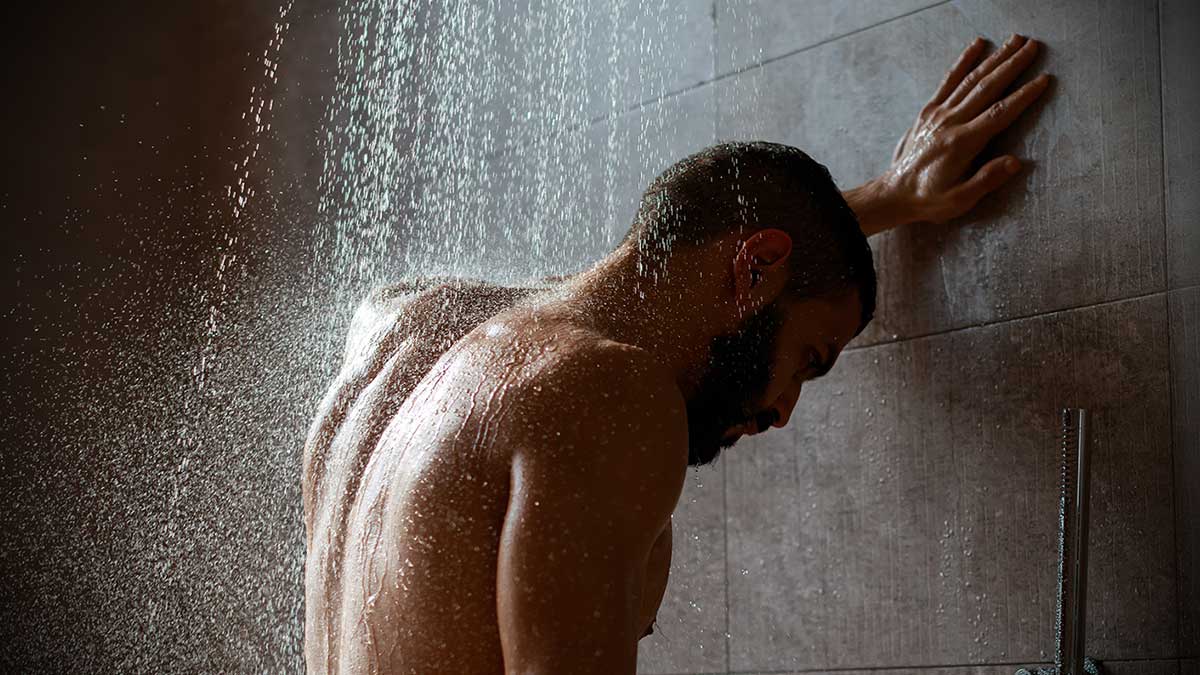As you age, it’s important to stay active, maintain a healthy diet, and seek new ways to boost your overall health. One simple way to do this is by incorporating cold showers into your daily routine. Here are some of the benefits of cold showers to consider.
Is it good to take cold showers every day?
Yes! According to many studies, including from the University of California, Los Angeles (UCLA) and Harvard University, cold showers – or even cold-water swimming – have a host of benefits that can improve your physical and mental health. From reducing inflammation and increasing alertness to improving circulation and boosting immunity, the advantages of taking cold showers are many.
How long should a cold shower be?
The length of a cold shower can vary based on personal preference, but generally, a brief 30-second cold blast is a good place to begin. As you become more accustomed to the cold water, you can gradually increase the duration of your showers.
Are two-minute cold showers good?
Yes! A brief two-minute cold shower can be beneficial for your health. Short, intense bursts of cold water can help improve circulation, reduce inflammation, and boost your energy levels.
What does a three-minute cold shower do?
A three-minute cold shower provides all the benefits of a shorter shower, while also increasing the production of white blood cells, which can help fight off infections and diseases.
What does a five-minute cold shower do?
A five-minute cold shower can provide a range of benefits, including increased circulation, reduced inflammation, improved mood, and greater alertness. Additionally, a slightly longer cold shower can promote weight loss by increasing the production of brown fat, which burns calories to generate heat.
What would happen after 14 days of cold showers?
After 14 days of taking cold showers, you may notice an improvement in your skin’s appearance, as cold water can help tighten pores and reduce puffiness. Taking cold showers can improve your immune system and help reduce the risk of illness.
What happens after 30 days of cold showers?
After 30 days of taking cold showers, you may experience improved mental clarity, reduced inflammation, and improved circulation. Regular cold showers can also reduce stress and improve overall mood.
What are the disadvantages of cold showers?
While cold showers have many benefits, there are some potential drawbacks to consider. Some people may find cold showers uncomfortable or unpleasant, and they may not be appropriate for those with certain medical conditions. Additionally, cold showers can cause dry skin or exacerbate existing skin conditions in some people.
Who should avoid cold showers?
Cold showers may not be suitable for individuals with certain medical conditions, including:
- Raynaud’s disease: this is a condition that causes blood vessels in the fingers and toes to narrow, which can cause pain and numbness in the affected areas. Cold showers may exacerbate this condition and cause discomfort.
- Circulatory disorders: individuals with poor circulation, such as those with peripheral artery disease (PAD), may also be more sensitive to cold temperatures and may not tolerate cold showers well.
- Heart conditions: cold showers may cause a temporary increase in heart rate and blood pressure, which can be problematic for individuals with certain heart conditions, such as arrhythmia or angina.
- Chronic pain: cold showers may exacerbate certain types of chronic pain, such as arthritis, fibromyalgia, or neuropathy.
If you have any medical conditions or concerns, it’s important to consult with a healthcare provider before incorporating cold showers into your routine.
What are the pros and cons of cold showers for older people?
For older people, cold showers can provide a range of benefits, including improved circulation, reduced inflammation, and improved mental clarity. However, some may find cold showers uncomfortable or difficult to tolerate. Cold showers can also exacerbate certain medical conditions, such as arthritis or chronic pain.
Do cold showers really burn fat?
Yes! Cold showers can help promote weight loss by increasing the production of brown fat, which burns calories to generate heat. However, the amount of fat burned will depend on a variety of factors, such as age, gender, and overall health.
When is the best time for cold showers?
The best time for a cold shower can vary based on personal preference. Some people prefer to take cold showers in the morning to help boost their energy levels and increase alertness, while others prefer to take them in the evening to help promote relaxation and improve sleep quality.
And the answer everyone wants to know: can cold showers help you live longer?
While there is no direct, conclusive evidence that cold showers can help you live longer, they have been shown to provide a range of health benefits that may contribute to overall longevity.
Boosting immunity, reducing inflammation, improving circulation, and increasing alertness, can help support long-term health and wellbeing. Losing weight and maintaining a healthy weight is also associated with a longer lifespan.
Cold showers can help with all these longevity factors, but no single factor can guarantee a longer life. The most effective way to promote longevity is to maintain a healthy lifestyle. This includes regular exercise, a balanced diet – and adequate sleep.
However, incorporating cold showers into your routine may be a simple and accessible way to support your overall health and potentially contribute to a longer, healthier life.
Start slowly and gradually increase the duration of your showers as you become accustomed to the cold water. But, as always, be sure to listen to your body and consult with a healthcare provider if you have any concerns or questions.
Do you take cold showers? Do you have any tips you can share to make it easier for our members to experience the benefits of cold showers? Why not share them in the comments section below?
Also read: Do you really need to shower every day?

